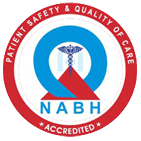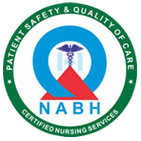FOLLOW THE MISSION HOSPITAL




Anaphylaxis is a severe, life-threatening allergic response. The immune system creates specific immunoglobulin E (IgE) antibodies towards a substance that is normally harmless. The body becomes sensitized to this substance, but when the person is exposed to it again, the IgE antibodies recognize this substance and activate immune cells to release large amounts of inflammatory substances, including histamine. These substances can cause the symptoms of anaphylaxis, which may include swelling, hives, lowered blood pressure, shortness of breath, wheezing, difficulty swallowing, and loss of consciousness.
In severe cases, a person will go into anaphylactic shock. Blood pressure drops severely and swelling occurs in the bronchial tissues, causing symptoms of choking and loss of consciousness. If anaphylactic shock isn't treated immediately, it can be fatal.
Anaphylaxis may begin with severe itching of the eyes or face and within minutes progress to more serious symptoms, including:
If you have symptoms of anaphylaxis, seek immediate medical attention, as the condition can quickly result in an increased heart rate, sudden weakness, a drop in blood pressure, shock, and ultimately unconsciousness and even death.
Food allergy is a recognized cause of anaphylaxis--especially peanuts, tree nuts (for example, walnuts, hazelnuts, Brazil nuts, cashews, etc.), shellfish (for example, shrimp, lobster, etc.), cow’s milk, egg, wheat, and soy. Venom allergies (for example, allergy to bee or wasp stings) are also recognized causes of anaphylaxis.
Some substances can cause reactions, called anaphylactoid reactions, that are similar to and just as serious as anaphylaxis, but do not involve IgE antibodies. Acetylsalicylic acid (aspirin), other nonsteroidal anti-inflammatory drugs, and intravenous radiocontrast dye given for CT scans are recognized causes of these reactions.
Pollens and other inhaled allergens (allergy-causing substances) rarely cause anaphylaxis.
Anaphylaxis is diagnosed based on its symptoms. People with a history of allergic reactions may have a greater risk for developing a severe reaction in the future.
Skin testing and RAST blood tests may help confirm the substances that cause severe allergic reactions. If anaphylactic reactions are suspected, testing should be performed under the guidance of a medical professional with training and experience in selecting appropriate tests.
The only effective treatment for acute anaphylaxis is epinephrine (adrenaline) by injection. Epinephrine works quickly to reverse anaphylactic symptoms. Epinephrine can be given through a self-delivered injection device. The most common injection site is the thigh.
If you are near someone who is going into anaphylactic shock, call for professional medical help immediately. CPR and other lifesaving measures may be required. If breathing is compromised, medical professionals may have to place a tube through the nose or mouth into the airway (endotracheal intubation) or even perform emergency surgery to place a tube directly into the trachea (tracheostomy).
In addition to epinephrine, treatment for shock includes intravenous fluids and medications that support the actions of the heart and circulatory system. After a person in shock is stabilized, medications such as antihistamines and corticosteroids may be given to further reduce symptoms.
If you are allergic to bee stings or any substances that cause anaphylaxis, you should always be prepared. Carry an epinephrine injection kit with you at all times. Also, if you have any drug allergies, you should always inform your health care provider before undergoing any type of treatment, including dental care. It is also a good idea to either wear jewelry or carry a card that identifies your allergy. In cases of emergency, it could save your life.

A Unit Of Durgapur Medical Centre Pvt. Ltd.